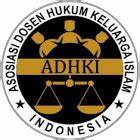The Neglect of Husband’s Nusyuz in Indonesian Islamic Civil Law: A Doctrinal Analysis of Qur’anic Principles and the Compilation of Islamic Law
DOI:
https://doi.org/10.29240/berasan.v4i1.14305Keywords:
Nusyuz, Husband, Marriage, KHIAbstract
The study aims to examine the concept of husband’s nusyuz within Islamic civil law and to evaluate its absence in the Indonesian Compilation of Islamic Law (KHI). Although the Qur’an, particularly Surah An-Nisa (128), recognizes the possibility of marital disobedience by husbands, the KHI explicitly regulates only the wife’s nusyuz, thereby creating a doctrinal imbalance. Employing a normative juridical method with a doctrinal and analytical approach, this research investigates primary legal sources (the Qur’an and classical fiqh) and positive legal instruments (KHI and related legislation) to identify the normative gap. The findings show that husband’s nusyuz encompasses both material violations, such as the neglect of maintenance and dowry, and non-material violations, including mistreatment, injustice, or abandonment. The omission of husband’s nusyuz in KHI restricts legal remedies available to wives and perpetuates asymmetry in marital rights and obligations. The study concludes that doctrinal reform is required to incorporate explicit provisions on husband’s nusyuz into KHI, thereby harmonizing Indonesian Islamic civil law with Qur’anic principles and the objectives of maqāṣid al-sharī‘ah. Such reform would strengthen legal protection for wives and promote greater gender justice within the framework of Islamic family law in Indonesia.
Downloads
References
Abdul Azis Dahlan, Ensiklopedi Hukum Islam, Jakarta: Ihtiar Baru Van Hoeve, 2003
Ahmad Azhar Basyir, Sebagaimana Dikutip Oleh: Tihami Dan Sohari Sahrani, Fikih Munakahat, Jakarta: Rajawali Pers, 2009
Ali Yusuf As-Subki, Fiqh Keluarga, Jakarta: Amzah, 2010
Al-Imam Al-Syafi’i Abi Abdillah Abi Muhammad Bin Idris, Al-Mukhtasar Al-Umm Fii Al-Fiqh, Jakarta; Pustaka Azzam, 2013
Amir Syarifuddin, Hukum Perkawinan Islam di Indonesia, Jakarta: Kencana, 2006
Faisal Bin Abdul Azaz Al-Mubarak, Nailul Al-Authar, Surabaya; Bina Ilmu, 1986
Imad Zaki Al-Barudi, Penerjemah: Tim Penerjemah Pena, Tafsir Al-Qur’an Al-Azhim Lin Nisa,Jakarta: Pena Pundi Aksara, 2007
Kementrian Agama RI, Syamil Al-qur’an Miracle The Reference, Bandung: P.T Sygma Examedia Arkanleema, 2010
Muhammad Bin ‘Abdurrahman, Fiqih Empat Madzhab, Bandung: Hasyimi, 2013
Muhammad Jawad Mughniyah, Fiqh Lima Madzhab, Jakarta; Lentera, 2011
Tim Redaksi Fokus Media, Kompilasi Hukum Islam, Jakarta: Fokus Media, 2005
Wahbah Az-Zuhaili, Fiqh Islam Wa-Adillatuhu, Jakarta: Gema Insane,2011
Yusuf Qardhawi, Halal Dan Haram Dalam Islam, Surabaya; Bina Ilmu, 2000
Downloads
Published
Issue
Section
Citation Check
License
Copyright (c) 2025 Ahmad Nur Wahid

This work is licensed under a Creative Commons Attribution-NonCommercial-ShareAlike 4.0 International License.
Authors who publish with Berasan: Journal of Islamic Civil Law agree to the following terms:
- Authors retain copyright and grant the journal right of first publication with the work simultaneously licensed under a Creative Commons Attribution-NonCommercial-ShareAlike 4.0 International License (CC BY-NC-SA 4.0) that allows others to share the work with an acknowledgment of the work's authorship and initial publication in this journal.
- Authors are able to enter into separate, additional contractual arrangements for the non-exclusive distribution of the journal's published version of the work (e.g., post it to an institutional repository or publish it in a book), with an acknowledgment of its initial publication in this journal.
- Authors are permitted and encouraged to post their work online (e.g., in institutional repositories or on their website) prior to and during the submission process, as it can lead to productive exchanges, as well as earlier and greater citation of published work (See The Effect of Open Access).








